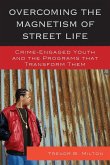- Broschiertes Buch
- Merkliste
- Auf die Merkliste
- Bewerten Bewerten
- Teilen
- Produkt teilen
- Produkterinnerung
- Produkterinnerung
Overcoming Evil describes the origins of genocide, violent conflict and terrorism, principles and practices of prevention, and avenues to reconciliation. It considers societal conditions, culture and insitutions, and the psychology of individuals and groups.
Andere Kunden interessierten sich auch für
![Overcoming the Magnetism of Street Life Overcoming the Magnetism of Street Life]() Trevor MiltonOvercoming the Magnetism of Street Life71,99 €
Trevor MiltonOvercoming the Magnetism of Street Life71,99 €![Violence Violence]() Brad EvansViolence17,99 €
Brad EvansViolence17,99 €![Witnesses to Terror Witnesses to Terror]() L. HowieWitnesses to Terror81,99 €
L. HowieWitnesses to Terror81,99 €![Corpus Anarchicum Corpus Anarchicum]() H. DabashiCorpus Anarchicum41,99 €
H. DabashiCorpus Anarchicum41,99 €![War Veterans in Postwar Situations War Veterans in Postwar Situations]() War Veterans in Postwar Situations41,99 €
War Veterans in Postwar Situations41,99 €![Witnesses to Terror Witnesses to Terror]() L. HowieWitnesses to Terror81,99 €
L. HowieWitnesses to Terror81,99 €![Media, Myth and Terrorism Media, Myth and Terrorism]() D. KelseyMedia, Myth and Terrorism41,99 €
D. KelseyMedia, Myth and Terrorism41,99 €-
-
-
Overcoming Evil describes the origins of genocide, violent conflict and terrorism, principles and practices of prevention, and avenues to reconciliation. It considers societal conditions, culture and insitutions, and the psychology of individuals and groups.
Hinweis: Dieser Artikel kann nur an eine deutsche Lieferadresse ausgeliefert werden.
Hinweis: Dieser Artikel kann nur an eine deutsche Lieferadresse ausgeliefert werden.
Produktdetails
- Produktdetails
- Verlag: Oxford University Press
- Seitenzahl: 598
- Erscheinungstermin: 15. Juli 2013
- Englisch
- Abmessung: 234mm x 156mm x 35mm
- Gewicht: 1005g
- ISBN-13: 9780199775248
- ISBN-10: 0199775249
- Artikelnr.: 50431423
- Herstellerkennzeichnung
- Libri GmbH
- Europaallee 1
- 36244 Bad Hersfeld
- gpsr@libri.de
- Verlag: Oxford University Press
- Seitenzahl: 598
- Erscheinungstermin: 15. Juli 2013
- Englisch
- Abmessung: 234mm x 156mm x 35mm
- Gewicht: 1005g
- ISBN-13: 9780199775248
- ISBN-10: 0199775249
- Artikelnr.: 50431423
- Herstellerkennzeichnung
- Libri GmbH
- Europaallee 1
- 36244 Bad Hersfeld
- gpsr@libri.de
Ervin Staub has taught at Harvard and the University of Massachusetts at Amherst. He has studied the influences that lead caring, helping, altruism in adults and children, the origins of genocide and other mass violence, the prevention of violence between groups and reconciliation after violence. He published extensively on these topics. He has also worked in many real world settings, on projects ranging from reconciliation and the prevention of new violence in Rwanda, Burundi and the Congo, to reducing the use of unnecessary force by police, to creating caring classrooms.
* CONTENTS
* Preface and Acknowledgments
* Chapter 1. Introduction. I. Origins, Prevention, Reconciliation
* Chapter 2. Introduction. II. Early and Late Prevention, The Costs of
Violence, Evil and Goodness
* Part I: The Origins of Mass Violence
* Chapter 3. The Sources of Conflict Between Groups and Primary
Examples
* Chapter 4. Instigating Conditions: Starting Points of Mass Violence
* Chapter 5. Psychological and Societal/Group Processes that Arise from
Instigating Conditions
* Chapter 6. Learning by Doing in Individuals and Groups: The Evolution
of Extreme Violence
* Chapter 7. Internal and External Bystanders: Their Passivity,
Complicity, and Role in the Evolution of Violence
* Chapter 8. Cultural/Societal Characteristics that Make Hostility and
Violence More Likely
* Chapter 9. Perpetration and the Perpetrators
* Chapter 10. Understanding the Woundedness/Psychological
Transformation of All Parties in Mass Violence.
* Part II. Prevention and Reconciliation
* Chapter 11. Introduction and late prevention.
* Chapter 12. Promoting Understanding, Healing and Reconciliation in
Rwanda
* Chapter 13. Constructive Responses to Difficult Life Conditions and
Conflict, Preventive Diplomacy and Dialogue
* Chapter 14. Developing Positive Orientation to the "Other":
Humanizing and Contact with the Other.
* Chapter 15. Beyond "us" and "them": Constructive Ideologies and
Groups, Common Identities, Inclusive Caring, and Pluralism
* Chapter 16. Changing Hearts and Minds: Information, Peace Education,
and Public Education in Rwanda and the Congo
* Chapter 17. The Potential and Power of Active Bystanders: Citizens,
Leaders, Nations, the International System.
* Chapter 18. Generating Action by Leaders, Citizens, Creating
Structures for Prevention.
* Chapter 19. Healing/Psychological Recovery and Reconciliation
* Chapter 20. Other Elements of Reconciliation: Complex Truth,
Collective Memory, Shared History and Justice
* Chapter 21. Forgiveness, Healing and Reconciliation
* Chapter 22. Raising Inclusively Caring, Morally Courageous Children
and Altruism Born of Suffering
* Chapter 23. Recommendations and Conclusions
* Preface and Acknowledgments
* Chapter 1. Introduction. I. Origins, Prevention, Reconciliation
* Chapter 2. Introduction. II. Early and Late Prevention, The Costs of
Violence, Evil and Goodness
* Part I: The Origins of Mass Violence
* Chapter 3. The Sources of Conflict Between Groups and Primary
Examples
* Chapter 4. Instigating Conditions: Starting Points of Mass Violence
* Chapter 5. Psychological and Societal/Group Processes that Arise from
Instigating Conditions
* Chapter 6. Learning by Doing in Individuals and Groups: The Evolution
of Extreme Violence
* Chapter 7. Internal and External Bystanders: Their Passivity,
Complicity, and Role in the Evolution of Violence
* Chapter 8. Cultural/Societal Characteristics that Make Hostility and
Violence More Likely
* Chapter 9. Perpetration and the Perpetrators
* Chapter 10. Understanding the Woundedness/Psychological
Transformation of All Parties in Mass Violence.
* Part II. Prevention and Reconciliation
* Chapter 11. Introduction and late prevention.
* Chapter 12. Promoting Understanding, Healing and Reconciliation in
Rwanda
* Chapter 13. Constructive Responses to Difficult Life Conditions and
Conflict, Preventive Diplomacy and Dialogue
* Chapter 14. Developing Positive Orientation to the "Other":
Humanizing and Contact with the Other.
* Chapter 15. Beyond "us" and "them": Constructive Ideologies and
Groups, Common Identities, Inclusive Caring, and Pluralism
* Chapter 16. Changing Hearts and Minds: Information, Peace Education,
and Public Education in Rwanda and the Congo
* Chapter 17. The Potential and Power of Active Bystanders: Citizens,
Leaders, Nations, the International System.
* Chapter 18. Generating Action by Leaders, Citizens, Creating
Structures for Prevention.
* Chapter 19. Healing/Psychological Recovery and Reconciliation
* Chapter 20. Other Elements of Reconciliation: Complex Truth,
Collective Memory, Shared History and Justice
* Chapter 21. Forgiveness, Healing and Reconciliation
* Chapter 22. Raising Inclusively Caring, Morally Courageous Children
and Altruism Born of Suffering
* Chapter 23. Recommendations and Conclusions
* CONTENTS
* Preface and Acknowledgments
* Chapter 1. Introduction. I. Origins, Prevention, Reconciliation
* Chapter 2. Introduction. II. Early and Late Prevention, The Costs of
Violence, Evil and Goodness
* Part I: The Origins of Mass Violence
* Chapter 3. The Sources of Conflict Between Groups and Primary
Examples
* Chapter 4. Instigating Conditions: Starting Points of Mass Violence
* Chapter 5. Psychological and Societal/Group Processes that Arise from
Instigating Conditions
* Chapter 6. Learning by Doing in Individuals and Groups: The Evolution
of Extreme Violence
* Chapter 7. Internal and External Bystanders: Their Passivity,
Complicity, and Role in the Evolution of Violence
* Chapter 8. Cultural/Societal Characteristics that Make Hostility and
Violence More Likely
* Chapter 9. Perpetration and the Perpetrators
* Chapter 10. Understanding the Woundedness/Psychological
Transformation of All Parties in Mass Violence.
* Part II. Prevention and Reconciliation
* Chapter 11. Introduction and late prevention.
* Chapter 12. Promoting Understanding, Healing and Reconciliation in
Rwanda
* Chapter 13. Constructive Responses to Difficult Life Conditions and
Conflict, Preventive Diplomacy and Dialogue
* Chapter 14. Developing Positive Orientation to the "Other":
Humanizing and Contact with the Other.
* Chapter 15. Beyond "us" and "them": Constructive Ideologies and
Groups, Common Identities, Inclusive Caring, and Pluralism
* Chapter 16. Changing Hearts and Minds: Information, Peace Education,
and Public Education in Rwanda and the Congo
* Chapter 17. The Potential and Power of Active Bystanders: Citizens,
Leaders, Nations, the International System.
* Chapter 18. Generating Action by Leaders, Citizens, Creating
Structures for Prevention.
* Chapter 19. Healing/Psychological Recovery and Reconciliation
* Chapter 20. Other Elements of Reconciliation: Complex Truth,
Collective Memory, Shared History and Justice
* Chapter 21. Forgiveness, Healing and Reconciliation
* Chapter 22. Raising Inclusively Caring, Morally Courageous Children
and Altruism Born of Suffering
* Chapter 23. Recommendations and Conclusions
* Preface and Acknowledgments
* Chapter 1. Introduction. I. Origins, Prevention, Reconciliation
* Chapter 2. Introduction. II. Early and Late Prevention, The Costs of
Violence, Evil and Goodness
* Part I: The Origins of Mass Violence
* Chapter 3. The Sources of Conflict Between Groups and Primary
Examples
* Chapter 4. Instigating Conditions: Starting Points of Mass Violence
* Chapter 5. Psychological and Societal/Group Processes that Arise from
Instigating Conditions
* Chapter 6. Learning by Doing in Individuals and Groups: The Evolution
of Extreme Violence
* Chapter 7. Internal and External Bystanders: Their Passivity,
Complicity, and Role in the Evolution of Violence
* Chapter 8. Cultural/Societal Characteristics that Make Hostility and
Violence More Likely
* Chapter 9. Perpetration and the Perpetrators
* Chapter 10. Understanding the Woundedness/Psychological
Transformation of All Parties in Mass Violence.
* Part II. Prevention and Reconciliation
* Chapter 11. Introduction and late prevention.
* Chapter 12. Promoting Understanding, Healing and Reconciliation in
Rwanda
* Chapter 13. Constructive Responses to Difficult Life Conditions and
Conflict, Preventive Diplomacy and Dialogue
* Chapter 14. Developing Positive Orientation to the "Other":
Humanizing and Contact with the Other.
* Chapter 15. Beyond "us" and "them": Constructive Ideologies and
Groups, Common Identities, Inclusive Caring, and Pluralism
* Chapter 16. Changing Hearts and Minds: Information, Peace Education,
and Public Education in Rwanda and the Congo
* Chapter 17. The Potential and Power of Active Bystanders: Citizens,
Leaders, Nations, the International System.
* Chapter 18. Generating Action by Leaders, Citizens, Creating
Structures for Prevention.
* Chapter 19. Healing/Psychological Recovery and Reconciliation
* Chapter 20. Other Elements of Reconciliation: Complex Truth,
Collective Memory, Shared History and Justice
* Chapter 21. Forgiveness, Healing and Reconciliation
* Chapter 22. Raising Inclusively Caring, Morally Courageous Children
and Altruism Born of Suffering
* Chapter 23. Recommendations and Conclusions








